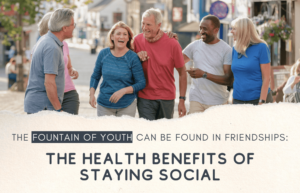Bodies sometimes lose their vigor with the passing of the years, but in emotional well-being, older people seem to rule supreme.
Researchers have been studying how we handle and experience emotions as we age. Subjects like shifting moods, the sense of satisfaction, and outbursts of anger and sadness in people have been of special concern.
The study is notable because it related to a topic related to aging that is not defined by a decline. Unlike physical fitness or cognition, where you may see slowing or declines, emotional regulation and experience are often as good, if not better, as we age.
On average, older people have more satisfying social contacts and report higher emotional well-being.
Why Aging Brains Get Better at Emotional Well-Being
According to the researchers, some neuroscientists believe that because we’re processing information a little slower with age, that makes us think before we act, instead of reacting quickly.
The study also recognized that older people tend to have a positive bias. Their default mode is, “Don’t sweat the small stuff” and, because of this, older people are better at picking their battles, more often letting go of a situation they experience as negative, especially with friends and family.
Speaking of friends and family: because older people tend to value emotional goals more, they spend more and more time with family close friends rather than meet new people who might be interesting.
Researchers find that psychological well-being is consistently related to lower levels of the stress hormone cortisol.
Why Sociability Is So Important
For people who are unhappy, it’s important to look at how to structure your days to feel more fulfilled. Exercise, eating right, and getting sufficient sleep are important factors to improve your health. But social relationships are as important as your cholesterol level. Make sure you spend time cultivating your social ties, prioritizing close friends and family members.
Researchers found that there is such a thing as being too comfortable! Finding things that engage and challenge you can give you purpose and meaning, which can be vitally important and emotionally gratifying. Participants who didn’t report having a meaningful hobby performed worse on cognitive tests compared to people who reported at least one. They also reported having received or given less help to others, and that they had spent more time watching TV.
“People who are reporting being less happy might not be as high in cognitive functioning,” researchers report. “This may be because they are spending less time with others.”
Consider engaging in activities and social interactions by getting involved with your association. Reach out and explore what social opportunities are available.
One way many retirees find emotional satisfaction is by volunteering. After all, it’s meaningful activity alongside peers, with physical and mental challenges to solve. Find out if your association is offering volunteer opportunities near you.
Source: https://www.annualreviews.org/doi/10.1146/annurev.psych.093008.100448



